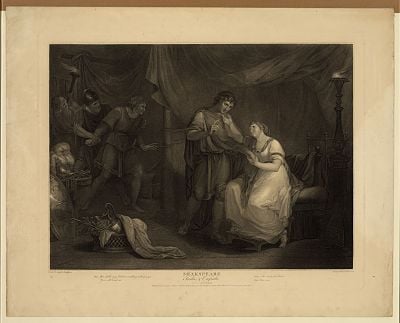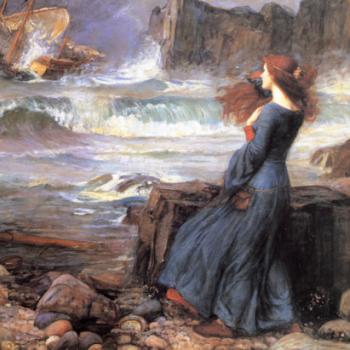 I love you.
I love you.
Very powerful to say today, but most powerful to say every day for thirty years or more. To endure in love is harder than to be in love and words are less important than deeds. This is as true in business and politics as it is in personal relationships. Anybody can say love words and even act on them once, but most of us cannot stand the pressure of change and chance.
Shakespeare wrote an odd play, Troilus and Cressida, about two lovers in the middle of the Trojan War. The play is as much about the political and war chiefs as it is about the lovers and all fails. Love fails. Politics fails. Generalship fails. Why?
People talk about endurance, loyalty, and abiding love, but mostly they shift with opinion. Tell them a thing is bad and they hate it, tomorrow they will love it if the right people say it is so.
Pride is a greater motive to Achilles, Ajax, Agamemnon, and Hector, than virtue. Troilus says he will love Cressida forever, but once he has her, he seems terribly eager to leave her the next morning. If later he is jealous, the motive seems more like injured pride than love. Cressida is, perhaps, unfaithful, but she is in a tough spot . . . sold off to the enemy. . . doing the best she can . . . and Troilus is unfeeling about her situation.
There is nobody in the play that thinks first of others and then of self. Thersites, like the Homeric original, is ugly and crude, but also somewhat wise. He pops the word bubbles that the cartoonish nobility speak. Sadly, Thersites has nothing positive to put in the place of puffery. After everyone is deflated, nothing is left. He is wise enough not to believe flattery, but not good enough to speak the truth.
It is not enough to be busy mocking and exposing fakery if one has nothing good, true, and beautiful to put in its place. This is romance, but nobody is romantic. Everyone postures about honor, love of the community, or family, but all are like Uncle Pander in the play: full of words that do not mean anything when put to the test. Troilus lets his city send his “lover” off the Greeks. The Greeks are willing to play mind games with Achilles rather than tell the truth about the war, themselves, and the situation.
The war is based on a false adulterous love (Paris and Helen) and can only continue because when the truth is spoken (Helen is not worth the loss of life), both sides keep going because it is all they know.
If we are not careful, we shall be like these fools: more interested in professions of love, than love. Christianity is odd in that it demands we love everyone, even our enemies. This is hard today and only great saints actually end up doing it, but the striving to do is good. Just as reducing from three packs a day to one cigarette a day is better than doing nothing, so hating a great deal less without achieving divine perfection is good for our community.
We can only know this when we endure, when we are unwilling to lie to others or to self in order to “win.” Pander, aptly named, says to the lovers:
Go to, a bargain made: seal it, seal it; I’ll be the
witness. Here I hold your hand, here my cousin’s.
If ever you prove false one to another, since I have 1850
taken such pains to bring you together, let all
pitiful goers-between be called to the world’s end
after my name; call them all Pandars; let all
constant men be Troiluses, all false women Cressids,
and all brokers-between Pandars! say, amen.
We all wish to be true lovers and never pander to base desire. We want to speak the truth, but we can only do so when we see the truth, speak the truth, and endure in the truth . . . even in defeat.
We must be able to say to all the members of the commonwealth with endurance:
I love you.
————————————————–
William Shakespeare went to God four hundred years ago. To recollect his death, I am writing a personal reflection on a few of his plays. The Winter’s Tale started things off, followed by As You Like It. Romeo and Juliet still matter, Lady Macbeth rebukes the lust for power, and Henry V is a hero. Richard II shows us not to presume on the grace of God or rebel against authority too easily. Coriolanus reminds us that our leaders need integrity and humility. Our life can be joyful if we realize that it is, at best, A Comedy of Errors. Hamlet needs to know himself better and talks to himself less. He is stuck with himself so he had better make his peace with God quickly and should stay far away from Ophelia. Shakespeare gets something wrong in Merchant of Venice . . . though not as badly as some in the English Labour Party or in my Twitter feed. Love if blind, but intellectualism is blind and impotent in Love’s Labours Lost. Brutus kills Caesar, but is overshadowed by him in Julius Caesar. We should learn not to make Much Ado about Nothing. We might all be Antony, but if we would avoid his fate then we must avoid flattery and the superficial love of Troilus and Cressida.












